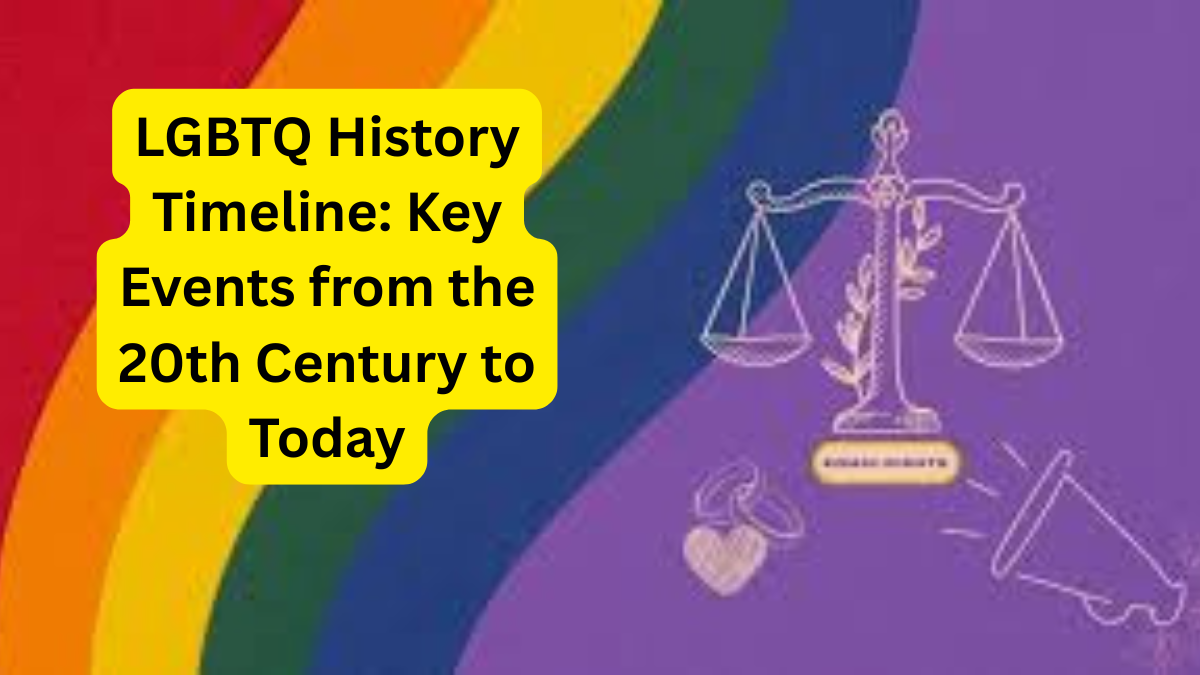An LGBTQ history timeline charts the long journey from criminalization and secrecy to visibility and the ongoing fight for full equality. This chronology is marked by pivotal moments of resistance, tragedy, and triumph that have shaped the modern movement. Understanding this timeline is crucial for appreciating the context of current rights and the courageous efforts of those who fought for them. This article provides a clear, chronological overview of the most significant events, with a special focus on the transformative lgbtq movement 1960s-70s, to offer a structured guide to this rich and complex history.
The Early Struggles: Foundations Pre-1960s
Before the explosive activism of the later 20th century, brave individuals and small groups laid the essential groundwork for organized advocacy, often at great personal risk.
Pioneering Organizations
- 1924: The Society for Human Rights – Founded in Chicago, it is considered the first documented gay rights organization in the U.S., though it was quickly disbanded.
- 1950: The Mattachine Society – One of the first sustained gay rights groups, advocating through education and a focus on assimilation.
- 1955: The Daughters of Bilitis – The first lesbian civil and political rights organization, providing a vital safe space and forum for women.
The Revolution Begins: The LGBTQ Movement 1960s-70s
This era represents the definitive turning point, shifting the struggle from quiet requests for acceptance to loud demands for liberation. The lgbtq movement 1960s-70s was characterized by militant activism and the birth of Pride.
The Stonewall Uprising (1969)
The single most catalytic event. A police raid on the Stonewall Inn in New York City on June 28, 1969, was met with fierce resistance from patrons, including transgender women of color like Marsha P. Johnson and Sylvia Rivera. This multi-night rebellion ignited the modern gay liberation movement.
Key Milestones of the Era
- 1970: The first Christopher Street Liberation Day March is held on the anniversary of Stonewall, evolving into modern Pride parades.
- 1973: The American Psychiatric Association declassifies homosexuality as a mental illness, a huge victory achieved through activist pressure.
Crisis and Mobilization: The 1980s-1990s
The 1980s brought a devastating health crisis that galvanized a new, fierce wave of activism and shifted the movement’s focus.
The AIDS Epidemic
The emergence of HIV/AIDS led to widespread stigma and government inaction. In response, groups like ACT UP (AIDS Coalition to Unleash Power), formed in 1987, used direct-action tactics to demand medical research and combat discrimination, forever changing health advocacy.
Legal Progress and Setbacks
- 1986: Bowers v. Hardwick upholds state sodomy laws, a major legal setback.
- 1993: “Don’t Ask, Don’t Tell” is implemented, a compromise policy that allowed gay people to serve in the military only if they hid their identity.
Modern Advances and Ongoing Battles: 2000s-Present
The new millennium saw rapid legal progress alongside the emergence of new challenges, particularly regarding transgender rights.
A Timeline of Modern Legal Victories
| Year | Event | Significance |
|---|---|---|
| 2003 | Lawrence v. Texas | Supreme Court strikes down sodomy laws nationwide. |
| 2011 | Repeal of “Don’t Ask, Don’t Tell” | Openly gay service allowed in the U.S. military. |
| 2015 | Obergefell v. Hodges | Supreme Court legalizes same-sex marriage nationwide. |
| 2020 | Bostock v. Clayton County | Supreme Court rules employment discrimination based on sexual orientation or gender identity is illegal. |
The current era is defined by both these victories and a coordinated backlash, including a wave of anti-transgender legislation across numerous U.S. states.
How to Research and Verify LGBTQ Historical Events
Conducting accurate historical research requires careful sourcing. Follow these steps to explore the LGBTQ history timeline:
- Identify Authoritative Institutions: Start with the digital collections of ONE Archives at the USC Libraries or the GLBT Historical Society.
- Use Precise Search Terms: Be specific. Search for “Stonewall oral history project” or “ACT UP demonstration archives” instead of broad terms.
- Consult Academic Sources: Use databases like JSTOR to find peer-reviewed articles on specific events for scholarly context.
- Cross-Reference Dates and Facts: Verify key dates across multiple reputable sources, such as historical society websites and university publications.
- Explore Multimedia Archives: Watch documentary films and listen to oral history recordings to gain a deeper, more personal understanding of events.
Frequently Asked Questions (FAQ)
Q: What is the most important event in LGBTQ history?
A: While subjective, the 1969 Stonewall Riots is widely cited as the most important catalyst for the modern movement because it sparked widespread, militant organizing and the tradition of Pride.
Q: When did the LGBTQ rights movement start?
A: There are many “starts.” Organized advocacy began with groups like the Mattachine Society in 1950, but the movement’s tone and strategy were radically transformed by the lgbtq movement 1960s-70s, particularly after Stonewall.
Q: What are the current priorities of the movement?
A: Current priorities include combating anti-transgender legislation, achieving comprehensive federal non-discrimination protections (like the Equality Act), addressing global criminalization, and ensuring intersectional racial and economic justice within the community.
Q: How can I learn about local LGBTQ history?
A: Contact your local LGBTQ community center or historical society. Many cities and states have rich, undocumented histories that are best discovered through local archives and oral history projects.
Explore the History Yourself
The LGBTQ history timeline is a living record of courage and resilience. To continue your learning, visit the digital archives and resources listed below. Support your local LGBTQ historical societies to help preserve these vital stories for future generations.
Contact & Resources:
- ONE Archives at the USC Libraries: https://one.usc.edu
- GLBT Historical Society Museum & Archives: https://www.glbthistory.org
- ACT UP NY Historical Archive: https://actupny.com
#LGBTQHistory #Timeline #Stonewall #Pride #ACTUP #TransRights
